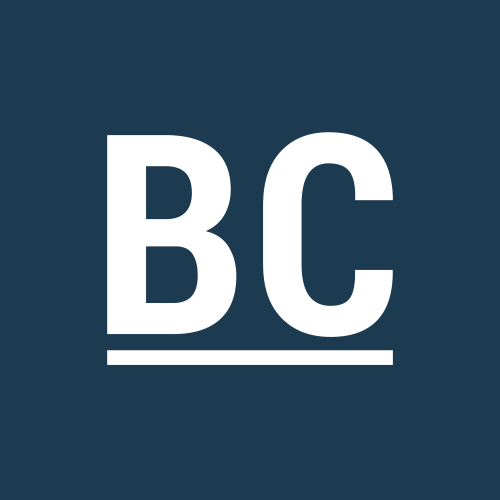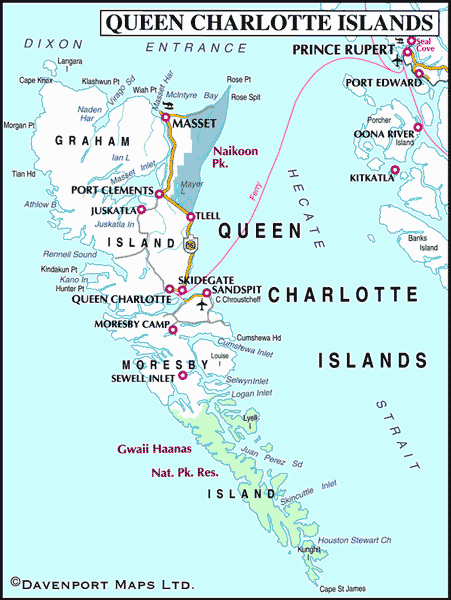Fishing Haida Gwaii
Fishing is the most common sport in Haida Gwaii, formerly called the Queen Charlotte Islands, and fishing is exceptional year round. Anglers are drawn by the world-class salmon fishing, as the island archipelago is the first land mass encountered on the migratory path of the Pacific chinook, coho, and chum salmon as they journey from the Arctic feeding grounds to their spawning grounds in the Pacific Northwest.
The fishing potential in Haida Gwaii requires very little introduction, there being ready access to superb freshwater and saltwater fishing. Salmon fishing is seasonal. Fishing for just about everything else is a year-round sport. Catch cutthroat trout, rainbow trout, or dolly varden inland, or get out onto the ocean to jig for lingcod, red snapper, or halibut.
Anglers fishing for halibut have been known to swamp their small boats while trying to land these potentially huge fish, so be careful if you snag a big one!
On many streams, high tide can easily push inland a mile (1.6 km) or more. As catch limits vary for tidal and non-tidal waters, tidal boundaries are posted on streams where regulations are subject to change.
Fishing Haida Gwaii: Graham Island
At the head of Virago Sound, off Dixon Entrance on the northern coast of the Queen Charlotte Islands, is pristine Naden Harbour, the remote location favoured by fishing lodges that attract sports anglers to the world-class salmon fishing offered by the islands. This location on the northeast coast of Haida Gwaii is ideal to intercept all runs of Pacific Salmon southbound for the rivers of British Columbia to the south.
Besides the five species of salmon, halibut and other bottom fish are also in abundance throughout the fishing season (June through mid-September), as well as crabs and prawns. In addition to some of the finest fishing in the world, visitors to this remote wilderness, anglers and non-anglers alike, enjoy an unparalleled sense of peace and tranquility, and develop a strong appreciation for the beautiful surroundings.
Fishing Haida Gwaii: Langara Island is one of the three premier fly-in saltwater fishing locations in British Columbia. The logging camps, fishing camps and settlements on Langara Island are serviced by scheduled or charter flights out of Alliford Bay on Moresby Island.
Remote fishing lodges are located at Port Louis, offering excellent fishing for salmon and halibut, or fishing for tuna 15 miles offshore. Amidst unparalleled scenic beauty, and some of the most rugged shoreline on the west coast of Haida Gwaii, Port Louis serves as a comfortable home base for adventurers seeking world-class sports fishing.
There are no communities in this part of the remote coastline, only remote fishing lodges and sport fishing motherships catering to the avid sport fisherman.
Fishing in Rennell Sound and Kano Inlet, and the west coast of the islands, is very productive, with springs caught from May through September, and halibut and other bottom fish generally present throughout the year. Sport fishing is the main attraction, and chinook salmon are the main target species for most anglers, although catches of halibut, lingcod, and rockfish are also great. Anglers in Rennell Sound will find a boat launch located in Shields Bay, at the head of the sound, a much-favoured shelter for fishing boats.
Fishing Haida Gwaii: Those seeking comfort and expert fishing guides are accommodated on a luxurious vessel anchored in Kano Inlet, the neighbouring inlet immediately to the south of Rennell Sound.
In Masset, fishermen should try their skills at Hiellen River, Sangan River or Chown River. If you don’t have a fishing rod, you can try your hand – and shovel – at digging for razor clams (check limits and licence requirements, if any) at low tide at North Beach in Naikoon Provincial Park. The clams are found between the high and low tide lines.
Quarter-sized depressions in the sand show where clams most likely are. If the sand moves when tapped, there’s a clam below. The trick is to dig fast enough to catch up with the clam, which is burrowing for safety. It takes a few tries to get the hang of it, and you have to be quick; these puppies are fast.
Fishing Haida Gwaii: There’s a rustic car-top boat launch ramp at Mayer Lake in Naikoon Provincial Park, and wilderness camping along the lakeshore for people making extended fishing voyages. Mayer Lake and Tlell River are the most accessible freshwater fishing spots in Naikoon, near Tlell. The Tlell River is famous for excellent steelhead fishing, huge fall runs of coho salmon, and good cutthroat trout fishing during July and August. Cutthroat fishing from 1 September to 30 June below the Highway 16 bridge is restricted to catch and release only. Yakoun Lake, about 15 miles (25 km) northwest of Queen Charlotte City, is another popular freshwater fishing destination.
Famous for its steelhead, the Yakoun River south of Port Clements is the largest river on Graham Island, and sees a good coho salmon run in the fall, good year-round fishing for rainbow, dolly varden and cutthroat trout, and a steelhead run from October to March.
Check for regulations on closure, possession limits and catch and release restrictions. The Yakoun River is the only stream system in Haida Gwaii that naturally supports a chinook salmon stock. This wild stock is enhanced by the efforts of the Yakoun River (Marie Lake) Fish Hatchery.
West of Port Clements, the Mamin River, which flows into Juskatla Inlet, supports a good run of coho salmon from mid September to mid October, and a good steelhead run from January to March. The Port Clements Salmon Enhancement Club works on the Mamin River and provides Yakoun River chinook to the Port Clements school feeding and release program.
Fishing in Skidegate Inlet is very productive, between Graham and Moresby Islands, and between Queen Charlotte City and Skidegate. Try your luck for springs and halibut off the small island near the museum at Second Beach.
Fishing Haida Gwaii: Moresby Island
Fishing is excellent in the Sandspit area, with bluejacks, springs and halibut caught off Sandspit Bar and Sachs Creek, which flows to Kwuna Point just before the ferry landing. Pinks and coho are caught in South Bay and Haans Creek. The Deena River supports a good steelhead run during early spring, and good coho salmon fishing in October and November.
The Coho Salmon Derby runs for consecutive weekends at the end of September, to coincide with the return of the bright silver coho salmon from the deep Pacific Ocean. The coho derby is open to anglers of all ages, and is one of the largest on Moresby Island.
Competitors launch at boat ramps at Alliford Bay, Sandspit, Copper Bay, and Cumshewa Inlet, and fishing is restricted to the region between Gray Bay and the Deena River, west of Alliford Bay. The popular event closes with the equally popular Coho Derby Dance.
The best lake fishing on Moresby Island is found in Mosquito Lake and Skidegate Lake, both of which are near Moresby Camp. Mosquito Lake is closer, about 3 miles (5 km) to the northwest, and anglers fishing for cutthroat and dolly varden will be relieved to know that Mosquito Lake was named after the Second World War bomber, and not the wretched bug.
The Pallant River flows out of Mosquito Lake and has a good steelhead run in the winter and spring months. Skidegate Lake is about 6 miles (10 km) beyond Mosquito Lake, and offers good cutthroat fishing during the spring, early summer and fall months.
Accessible by car from Sandspit, the Copper River offers a run of sea-run cutthroat and good dolly varden fishing between May and July. Coho salmon run the Copper River from mid-September to mid-October.
Fishing Haida Gwaii: Service and Facilities
Fishing guides abound, and luxurious fishing lodges, floating lodges and sportfishing motherships provide the ultimate fishing experience in this last frontier. Most of the fishing spots described are only accessible through private logging roads. Sportsmen and visitors using these roads should contact the forestry companies in Juskatla and Sandspit for access information.
Both saltwater and freshwater fishing licenses are mandatory. Supplementary licenses are required for steelhead. All fishing licences are available on the islands. For regulations, restrictions and further information, please contact the Visitor Centre.
A fish canning and freezing plant located on the east shore of Masset Sound is a significant source of employment in the community, and a hive of activity during the fishing season. With the downturn in salmon fisheries, the fish plant in Masset was facing hundreds of lay-offs until they switched to processing the lowly Dogfish, locally abundant and a source of high value by products. The processing plant offers custom processing, vacuum packing, smoking, freezing and shipping for locally-caught sport fish. Fresh or frozen fish and crabs are also sold.
Fishing Haida Gwaii:
https://haidagwaiifishingcharters.com




